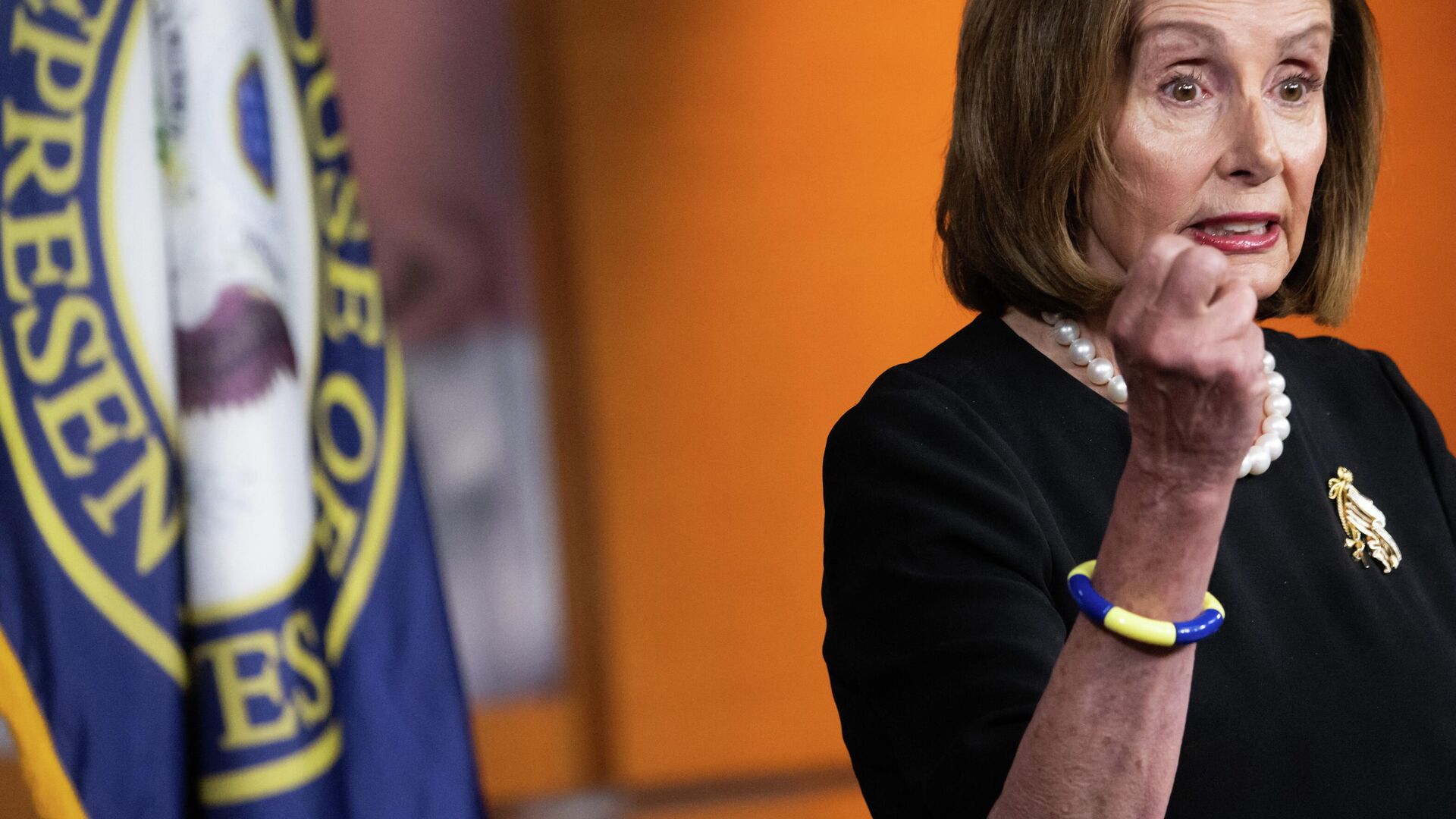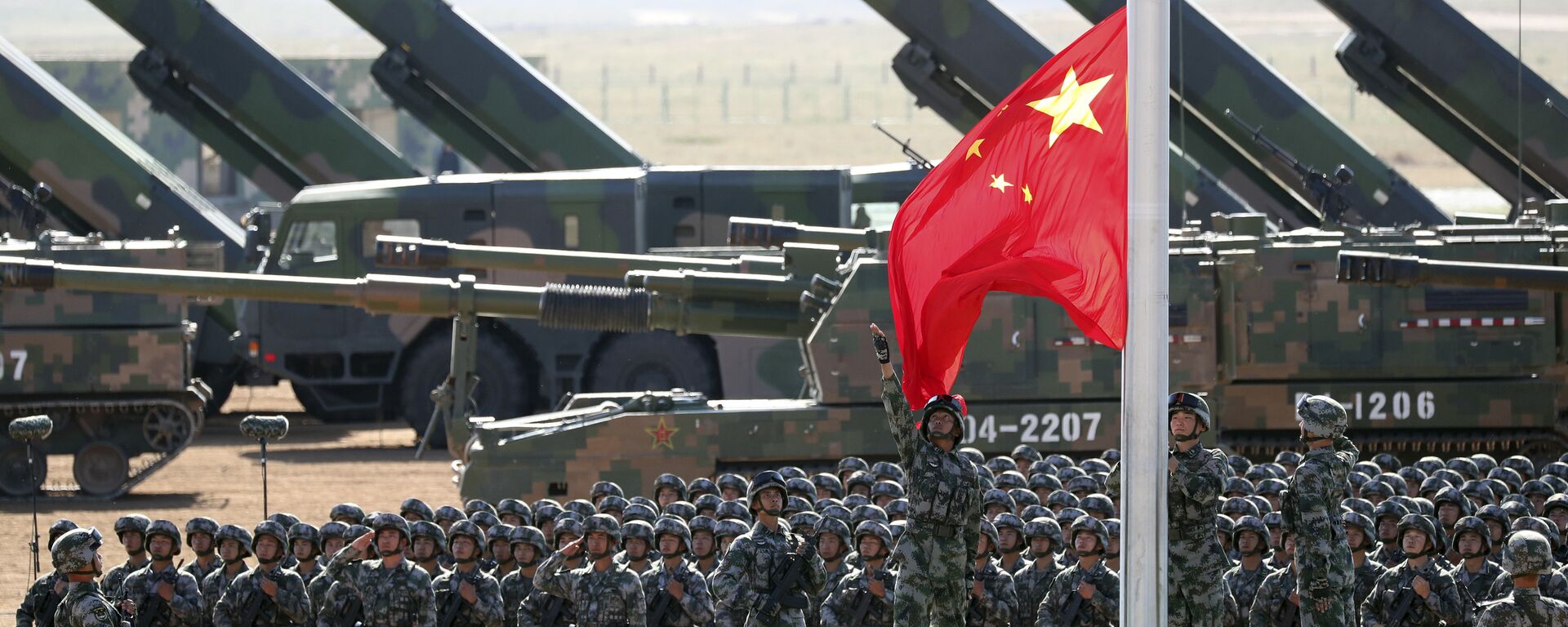Taiwan: Washington's Clumsiness May Push US-China Relations to Point of No Return, Scholar Says
17:11 GMT 30.07.2022 (Updated: 12:44 GMT 19.06.2023)

© AFP 2023 / SAUL LOEB
Subscribe
China held live-fire military drills in the Taiwan Strait amid press reports about House Speaker Nancy Pelosi's alleged visit to Taiwan, an island considered an inalienable part of the People's Republic by Beijing.
The People’s Liberation Army (PLA) launched “live-fire exercises” near the Pingtan Islands off Fujian province on July 30, according to Xinhua. The announcement came as House Speaker Nancy Pelosi prepared to arrive in Asia. She has not confirmed so far whether she will stop in Taiwan during her Asian tour. Meanwhile, the White House claimed on Friday that there is no reason for Washington and Beijing "to come to blows" should the House speaker visit the island.
"No matter what was the original intention, the political signals sent to Beijing from Washington were chaotic and unorganized," says Dr. Chang Ching, a research fellow from the Taiwan-based Society for Strategic Studies and a lead military expert on the People's Liberation Army and regional security in Taiwan. "As far as we can see, the likelihood of a visit to Taipei by Nancy Pelosi is extremely slim. The attempt of visiting Taiwan was nothing else but a wrongly played musical note not matching the overall melody of Biden’s China policy."
On Thursday night, Chinese President Xi Jinping warned the US not to play with fire over Taiwan, stressing that any involvement would ultimately backfire on the US. For its part, the Chinese Ministry of Defense hinted at a possible military action in the event Pelosi's US government plane lands in Taipei.
"We should notice that Beijing has explicitly expressed its intention to accommodate Washington’s political objectives and seek an approach for mutually beneficial and co-existence," Dr. Chang says. "The stance of avoiding conflict with Washington even including disagreeing with the term of 'competition' adopted by the Biden administration to define Sino-US relations has been repeatedly addressed by senior diplomats including Xi himself in his dialogue with Biden on July 28. Nonetheless, there is a nonnegotiable redline known as the Taiwan issue insisted by Beijing."
Nevertheless, the scholar downplayed assumptions saying that Pelosi's trip may ignite a military escalation between the US and China over Taiwan. Even though the PLA spokesman did mention that the Chinese military would not sit on their thumbs if Pelosi's visit to Taiwan really occurs, he "did not imply any specific military action or retaliation," according to Dr. Chang.
Taiwan Trap for Biden
It raises questions as to why the Biden administration is poking China and Russia at one and the same time through bellicose rhetoric, provocations, threats, and sanctions policies.
"It is always unwise to produce hostilities on many fronts at the same time," the scholar emphasizes. "However, the United States is exercising a proxy war with Russia at the moment. The pressure on Washington from the armed conflict in Ukraine therefore is relatively insignificant. How to stabilize the interactions with Beijing that are tightly associated with the domestic economic performances and recession within the United States is more crucial to Biden’s immediate political agenda. This is exactly the reason why Biden has explicitly disagreed with any attempt to intimidate Beijing as he was trying his utmost efforts to have a summit dialogue with Xi."
According to the academic, there are certain "political indications" that Pelosi's attempt to visit Taiwan is "uncoordinated and non-synchronous with Biden’s overall China policy." Nevertheless, "this reckless political maneuver" has created a trap for the US president and "provided a perfect excuse for the opposite party politicians to put pressure on Biden’s national security team."
While neither Biden nor the Chinese political leadership is interested in ramping up tension over Taiwan, "we have no idea of when and how Washington may come across the redline reaching the point of no-return," warns Dr. Chang.
"It is quite dangerous for the [US] salami-slicing tactics of intimidating Beijing by adjusting certain diplomatic practices towards Taipei," he says. "From Beijing’s point of view, all these political maneuvers are intentionally encouraging Taiwan to declare independence. There is no precise limit of triggering conflict between Washington and Beijing but the risk is inevitably increasing in recent years."


